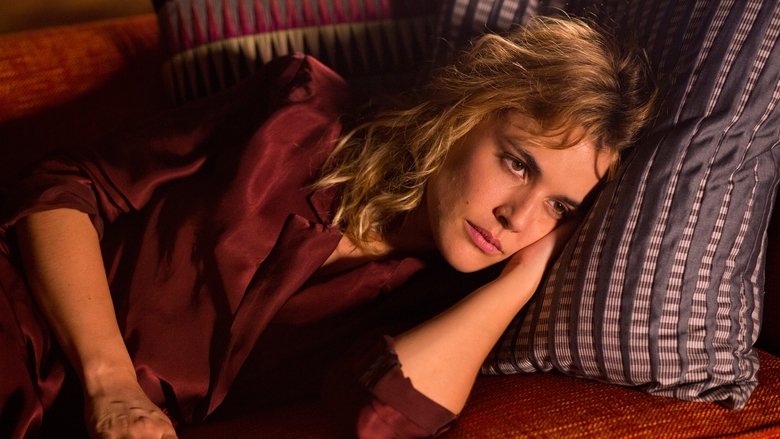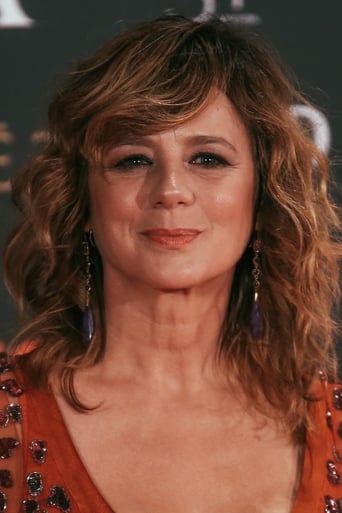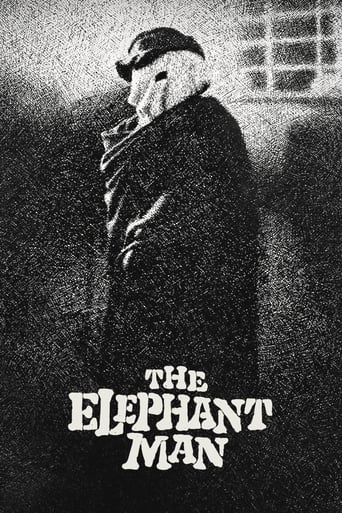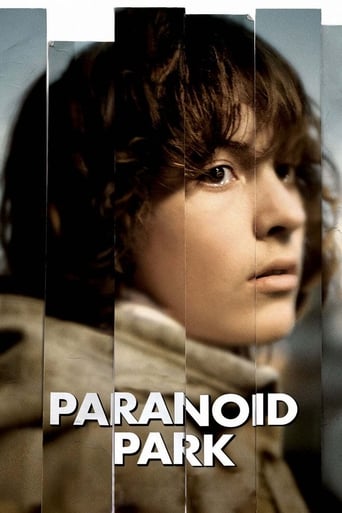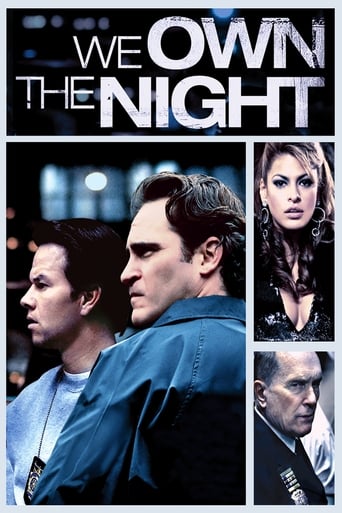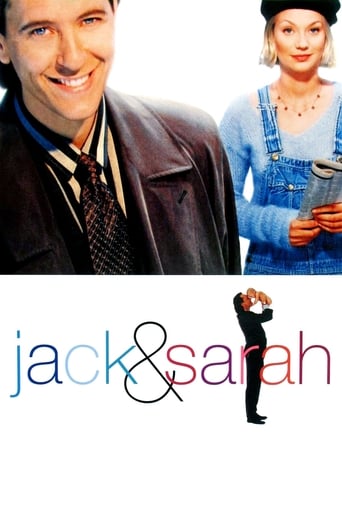Julieta (2016)
The film spans 30 years in Julieta’s life from a nostalgic 1985 where everything seems hopeful, to 2015 where her life appears to be beyond repair and she is on the verge of madness.
Watch Trailer
Cast


Similar titles
Reviews
In Madrid, the middle-aged Julieta (Emma Suárez) is packing her books to move to Portugal with her boyfriend Lorenzo (Dario Grandinetti). She goes shopping for the journey and stumbles upon Bea (Michelle Jenner), who was the best friend of her missing daughter Antia. They talk to each other and Bea discloses that Antia is married with three children. Julieta decides to stay in Madrid; breaks with Lorenzo; and rents an apartment in her former building, hoping that Antia contacts her. She decides to write the heartbreaking story of her life since she was a young woman and met her beloved future husband and Antia´s father Xoan (Daniel Grao) until the losses of Xoan and Antia. "Julieta" is a dramatic romance by Pedro Almodóvar in a conventional style totally different from most of his previous works, since it is neither tacky nor aggressive to the Catholic Church; and using neither bright colors nor bizarre characters. Indeed it is a mature work disclosing the story of a middle-aged depressed woman that has her life affected for the loss of her beloved husband first and the last twelve years for the disappearance of her eighteen year-old daughter. The most important, the powerful drama never becomes a melodramatic soap-opera. The screenplay is very well-written with a perfect open end and magnificent cast. My vote is seven.Title (Brazil): "Julieta"
If you've seen any of Pedro Almodóvar's movies, then you should know that he often focuses on relationships, especially relationships among women. "All About My Mother", "Talk to Her" and "Volver" are among the starkest examples. Now he brings us "Julieta", focusing on a mother's guilt.The title character is a middle-aged woman planning to leave Madrid. Then she comes across her daughter's best friend, bringing back a series of unpleasant memories. Julieta suffered some of the worst tragedies earlier in her life but kept pushing forward, and this meeting prompts her to change her plans.As he tends to do in his movies, Almodóvar creates some of the most complex characters. Indeed, his female characters are the most complex of all (contrast that with Michael Bay's movies, where the women are just eye candy). But these damage caused by the previous events in Julieta's life will not go away so easily, and she does what she has to.Outstanding movie.
It's true, Julieta is Almodóvar's least hysterical movie. The most atypical. The post-punk look is just anecdotal and its characters are not the heroines to which we are used to. It is a narratively mature drama, harmonious, with an air of Greek tragedy and terrible myth that goes through the film. It is about weak women, fragile women, broken women. The melancholic light and Hopper's colour palette create a very suitable scenario where this family drama unfolds. The movie keeps a very determined narrative tone and is a very enjoyable aesthetic experience. The loneliness and the pain caused by the passage of time are the real main characters of the film. The depression and the unbearable guilt as well. And the spleen of the Atlantic. And the emptiness.
Fate and mother/daughter relationships Pedro Almodóvar crowns his 30 year career as one of our most creative, controversial and brilliant cinematic artists with this his twentieth film – JULIETA – based on three short stories by Alice Munro as adapted for the screen by Almodóvar. Not only is the story mesmerizing and at times challenging to keep up with the director's ideas, it displays a brilliant cast of Spanish actors in one of the most impressive films of the past year. One of the tricky directorial decisions is to employ two actresses to play the same character – one as the younger Julieta and one as the more mature Julieta. The manner in which Almodóvar transitions these two aspects of the personality of Julieta (as well as the stunning performances by the two actresses – Emma Suárez and Adriana Ugarte) is just one of the miracles of this film.Briefly, after a casual encounter, a brokenhearted woman decides to confront her life and the most important events about her stranded daughter. But more specifically, Julieta (Emma Suárez) is a middle-aged woman living in Madrid with her boyfriend Lorenzo (Dario Grandinetti). They plan to move to Portugal when Julieta encounters Bea (Michelle Jenner), former best friend of her daughter Antia (Priscilla Delgado then Blanca Parés), who reveals that Antia is living in Switzerland and is married and with three children. With the heart broken after 12 years of total absence of her daughter, Julieta cancels the journey to Portugal and she moves to her former building, in the hope that Antia someday communicates with her sending a letter. Alone with her thoughts, Julieta starts to write her memories to confront the pain of the events happened when she was a teenager (Adriana Ugarte) and met Xoan (Daniel Grao), a Galician fisherman. Falling in love with him, Julieta divides her time between the family, the job and the education of Antia until a fatal accident changes their lives: Xoan is drowned at sea during a brutal storm. Slowly decaying in a depression, Julieta is helped by Antia and Bea, but one day Antia goes missing suddenly after a vacation with no clues about where to find her, leaving Julieta desperate to understand the reasons of her missing and her search leads to self discovery and acceptance of buried secrets – her own relationship with her mother and the kinship between like mother who happen to be mother/daughter. The uniformly excellent cast includes the Almodóvar constant, Rossy de Palma, whose presence is a meaningful driver to the story. The musical score is by Alberto Iglesas and the lush cinematography is the work of Jean-Claude Larrieu. But the crown belongs to Pedro Almodóvar – another brilliant masterpiece.


